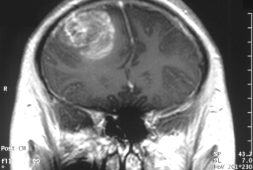While making mistakes is a part of life, there is nothing wrong with wanting to avoid these altogether. So, what can one person do? Should people start practicing journaling? Should they start listing down the steps of what they need to do? While these solutions do work, there is a much simpler one that researchers are looking into – meditation.
Meditation helps relax both the mind and the body, and when a person is calm, collected and is clear of mind, he or she is able to think more reasonably and act out more sensibly. This will reflect in his or her daily life. So, what exactly are the benefits of meditation?

If you’ve noticed yourself becoming forgetful or you’ve committed mistakes when in you’re in a rush, a new study from Michigan State University, which is known as the largest of its kind to-date, discovered that meditation could actually help you overcome these obstacles.
What the researchers did was test how open monitoring meditation can make changes on brain activity to the point that the person is more aware of the possible errors he or she could make. The type of meditation that helps is one that focuses awareness on feelings, thoughts, or sensations as these unfold in both body and mind.
“People’s interest in meditation and mindfulness is outpacing what science can prove in terms of effects and benefits,” shared Jeff Lin. He is a MSU psychology doctoral candidate and the co-author of the study. He also proceeded to say, “But it’s amazing to me that we were able to see how one session of a guided meditation can produce changes to brain activity in non-meditators.”
The findings of the research suggest how the many forms of meditation can also have a variety of neurocognitive effects. Lin further stated that there is very little research about how open monitoring meditation affects or influences error recognition. “Some forms of meditation have you focus on a single object, commonly your breath, but open monitoring meditation is a bit different,” Lin explained. “It has you tune inward and pay attention to everything going on in your mind and body. The goal is to sit quietly and pay close attention to where the mind travels without getting too caught up in the scenery.”
Lin had his MSU co-authors get involved with the study. William Eckerle, Ling Peng, Jason Moser, and Lin himself enlisted more than 200 participants. They were tested to see how open monitoring meditation affected how they detected and responded to mistakes people often made.
The participants who had never done meditation previously were walked through a 20-minute open monitoring meditation exercise. While they did this, the researchers measured their brain activity with a process called electroencephalography, or what is commonly known as EEG. After which, they were asked to complete a computerized distraction test.
“The EEG can measure brain activity at the millisecond level, so we got precise measures of neural activity right after mistakes compared to correct responses,” Lin explained. “A certain neural signal occurs about half a second after an error called the error positivity, which is linked to conscious error recognition. We found that the strength of this signal is increased in the meditators relative to controls.”
While immediate improvements to actual task performance were not immediately apparent with those who meditated, the researchers did come up with interesting findings. The results they’ve seen show a promising glimpse into the potential of practicing sustained meditation for longer periods of time.
“These findings are a strong demonstration of what just 20 minutes of meditation can do to enhance the brain’s ability to detect and pay attention to mistakes,” Moser stated. “It makes us feel more confident in what mindfulness meditation might really be capable of for performance and daily functioning right there in the moment.”
It so happens that in the recent years, practicing meditation and mindfulness have become very popular. In fact, it has already been considered mainstream because of the many followers. Lin and his team are among a relatively small group of researchers that have decided to take the neuroscientific approach to assessing the psychological and performance effects of the practice.
While much has yet to be done in terms of research, the people in the study are looking ahead. Lin said that the next phase of research will be to take in a broader group of participants. They will also test the many forms of meditation and determine whether changes that take place in the brain activity can translate to behavioral changes if it comes from long-term practice. Details of this have been published in the journal Brain Sciences.
“It’s great to see the public’s enthusiasm for mindfulness, but there’s still plenty of work from a scientific perspective to be done to understand the benefits it can have, and equally importantly, how it actually works,” Lin explained. He further added, “It’s time we start looking at it through a more rigorous lens.”



